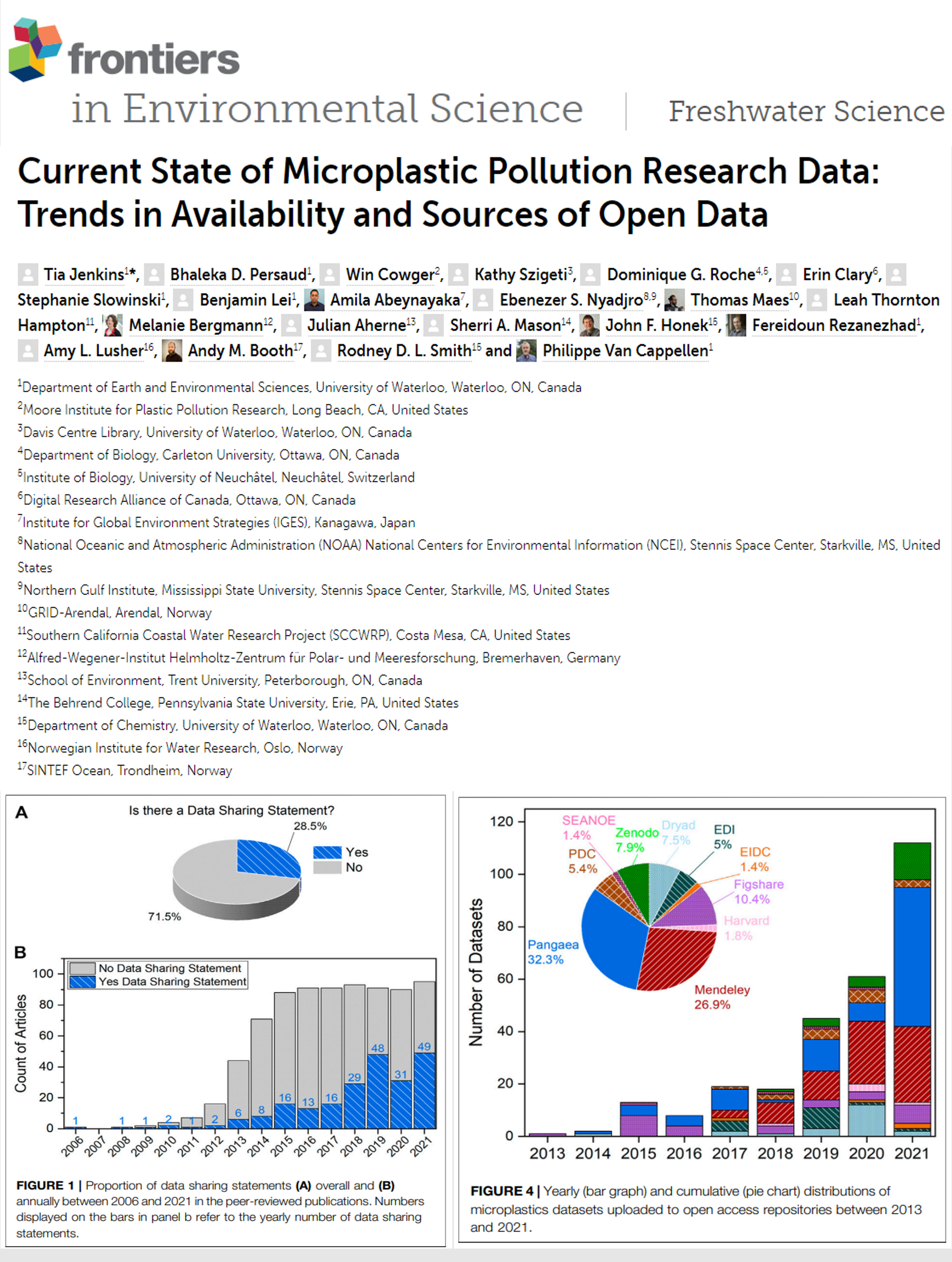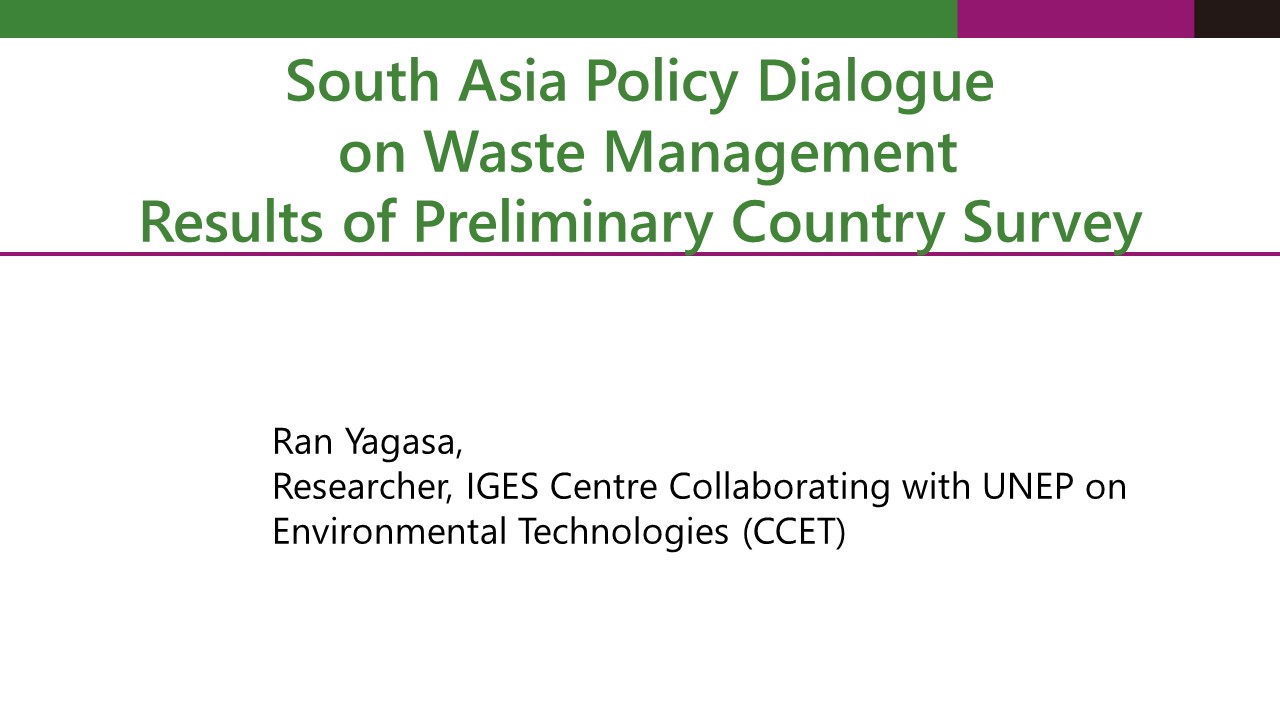In Frontiers in Environmental Science | Freshwater Science
The rapid growth in microplastic pollution research is influencing funding priorities, environmental policy, and public perceptions of risks to water quality and environmental and human health. Ensuring that environmental microplastics research data are findable, accessible, interoperable, and reusable (FAIR) is essential to inform policy and...




